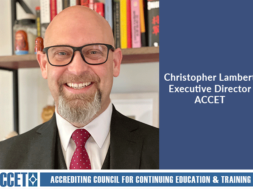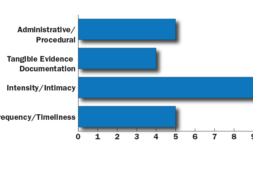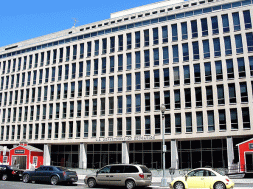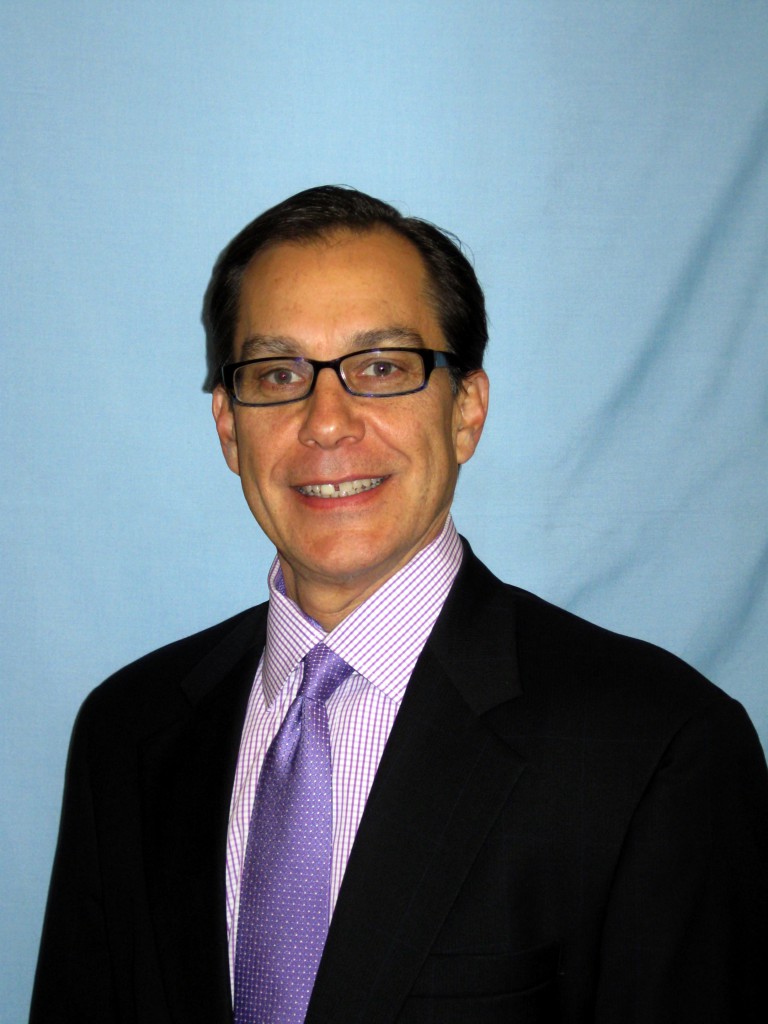
MAPCS Goes Regional
By James (Jim) A. Bologa, President and Chief Executive Officer, Porter and Chester Institute and YTI Career Institute
It was during a board meeting of the Massachusetts Association of Private Career Schools (MAPCS) about three years ago when we were discussing our declining membership that, we as the most active state school association in New England, decided to create a regional private career school association called NEPCSA which stands for the New England Private Career School Association. Our board of directors believed that combining state association resources and activities would better serve the students of private career schools throughout New England, while creating a more robust regional advocacy voice.
In Massachusetts, we have seen our private career school membership decline by approximately 65 percent since 2007. In addition, we have seen school owners and operators discouraged by the increased federal and state regulatory burdens. Currently in New England, three of the six states have private career school associations with approximately 100 member schools out of approximately 300 total private career schools. There are about another 50 private career schools in the remaining three states that do not have active school associations.
As previously mentioned, private career schools throughout the country have been under significant federal and, in some cases, state regulatory pressure, yet they continue to educate and train students with the market specific skills to enter the workforce with entry-level and middle skilled jobs that pay market salaries.
Our belief was that there is still significant value to maintaining a regional private school association and out of this belief NEPCSA was formed.
The purpose of this article is to share what we went through and to inform other private career school state associations of the benefits and challenges associated with this process.
MAPCS, created in 1947, has been at the forefront of legislative advocacy and training for our members. We asked ourselves, “Why should MAPCS take the lead in the development of a regional association for private career schools?” Here is a summary of some of the legislative and regulatory efforts MAPCS has undertaken on behalf of its members over the last several years.
- MAPCS led the way throughout the process of defending school rights with regard to regulations proposed by the Attorney General (AG) and the Division of Professional Licensure (DPL). We have made progress and our voice has been heard through our partnering efforts.
- Worked and partnered with DPL to revise proposed regulations based on input they have received from MAPCS and its members.
- In 2015, sued the former Massachusetts Attorney General Martha Coakley in federal court challenging her office that the consumer protection regulations promulgated were unconstitutional and conflicted with existing federal laws.
- In January 2016 MAPCS reported some good news1 – in the Massachusetts Private Career Schools litigation, the Federal Court in Boston ruled in MAPCS’ favor, in part, and held that certain regulations promulgated by the Massachusetts Attorney General in 2014 under the Massachusetts consumer protection statute, violated the First Amendment of the United States Constitution. They are, therefore, invalid and unenforceable. We are extremely pleased with this outcome, particularly given the challenges career schools have faced in the Commonwealth.
- Achieved a major legislative victory when we were successful in efforts to ensure that private career school concerns are heard on the DPL Advisory Board. The Advisory Board consists of 12 members, one of which, by statute, is an officer of the board of directors of the Massachusetts Association of Private Career Schools.
- Held four successive “Day on the Hill” events on Beacon Hill in Boston, Massachusetts. Making contact with policy makers is the best way to spread the positive work private career schools do each day within their communities helping students obtain the skills and training that employers are so desparating looking for. Each year, with the help and assistance of MAPCS lobbyists, we have secured top-notch speakers and attended meetings with Massachusetts legislative leaders during the “Day on the Hill” events.
- Developed a professional and cooperative relationship with DPL. In October 2015, the DPL director gave the keynote address at the MAPCS Professional Development Conference. The prior year, the Director of the Office of Private Occupational School Education for DPL gave the keynote address.
- On an ongoing basis, MAPCS together with its’ lobbyist firm worked to protect member interests. Together we:
- Organized and participated in meetings with Massachusetts Attorney General and DPL staff to discuss proposed regulations.
- Developed written and oral testimony for the hearings on proposed regulations and legislation.
- Issued regular legislative and regulatory updates by email and on the website.
- Monitored the progress of all relevant legislation and regulations from introduction until final disposition.
- Provided copies of designated bills, amendments, committee reports, conference agreements, and other relevant documents to MAPCS staff as soon as they become available.
- Advised MAPCS board on regulatory and legislative strategy based upon new or ongoing knowledge of state politics or other factors affecting the progress of designated regulation and legislation.
- Arranged visits with state officials for MAPCS members.
To keep members up to date on issues of importance to the private career school sector MAPCS holds quality on ground and online seminars throughout the year on legal issues, marketing, admissions, retention, financial aid, faculty development and career services. Our goal is to provide continuing education for all relevant stakeholders of our member schools. MAPCS sources national trainers, local speakers and successful peers. As we all know, accrediting agencies recognize the value of such professional development.
We faced several challenges in terms of combining our state’s private school associations. For example, Connecticut, Massachusetts and New Hampshire had their own association with their own boards of directors.
While merging into one regional association has been discussed for several years, it took time to get every association on board.
In order for us to move forward, leaders and stakeholders from each state had to come to terms with one association speaking with a unified voice and sharing a commitment to a regional mission and membership.
As we formed the regional association we needed to ensure that all states and students interests were fairly represented by the future members of the board of directors. We also had to determine what financial and operational resources would be available to start out on a solid footing.
Some of the things we had to do were the following:
- Agree on the mission, what the new association will look like, and what membership services will be offered;
- Develop a plan of action to increase participation by a majority of private career schools in the six states;
- Win the support of the members from each state association;
- Ensure each association will not lose power and/ or identity with government/agency regulators, vendors or other partners; and
- Figure out our cultural differences within each state association.
Our action plan included the following steps:
- Develop a persuasive case and list of benefits for a regional association/merger.
- Each association’s membership must vote to accept the merger and the name.
- A new governance structure must be formulated.
- Develop a plan to blend boards, committees, management, finances, and members.
- Create new bylaws and incorporation documents.
- Create a new brand and logo.
- Develop new membership promotional and marketing materials.
- Create a new website.
- Establish and/or enhance existing working relationship with each state’s educational regulators and legislators.
- Establish a legislative agenda for private career schools to address issues of key importance.
- Review legislative representation/lobbying capabilities, contracts and costs.
- Develop a transition action timetable.
The newly formed NEPCSA will represent the combined efforts of all private career schools in the six New England states. For those of you not familiar with New England, the following states are now included, Vermont, New Hampshire, Maine, Massachusetts, Connecticut and Rhode Island. The new regional association will form an efficient, collaborative group to provide:
- Legislative and regulatory representation and support;
- Opportunity to strengthen educational performance and market demand for skilled graduates by providing professional training programs and resources;
- Enhanced communication to increase awareness of the issues affecting career education;
- Growth opportunities for educational professionals and leaders, and;
- More efficient administration of membership activities.
We see the objectives or benefits of NEPCSA as follows:
1. Legislative and regulatory representation and support. NEPCSA will:
- Provide access to resources and information designed to assist schools meet legislative and regulatory challenges.
- Give members a unified voice.
- Monitor legislative and regulatory proposals and make sure private career colleges and schools are a recognized participant in education policy discussion.
- Work closely with state legislatures, government officials and regulatory agencies to advocate for the support and development of the region’s private career institutions and the students who attend them.
- Work proactively to advance legislation and regulations favorable to career education.
2. Opportunity to strengthen educational performance and market demand for graduates by providing professional training programs and resources. NEPCSA will:
- Promote private career colleges as vital partners in providing educational and career opportunities.
- Ensure that career education is viewed as an integral part of employee and economic development programs in each state.
- Advance the size and scope of the impact of career education in each state.
- Highlight the impact of career education on the qualifications of the workforce in each state.
- Support student access, completion, and successful entry into the occupational discipline and career of their choosing.
3. Enhanced communication to increase public awareness of the issues affecting career education. NEPCSA will:
- Provide members with critical information that keeps them informed on important issues vital to their mission.
- Engage in media and member outreach to increase awareness of the issues affecting career education.
- Deliver critical information to members and key target audiences.
- Raise the awareness of career colleges’ importance within the regional economy and promote the positive impact of the education attained at member colleges to key government officials, educational leadership and the business community.
4. Growth opportunities for educational professionals and leaders. NEPCSA will:
- Provide a forum for the sharing of career education best practices.
- Combine forces to provide private school faculty and staff with an expanded networking circle.
- Build on the highly regarded continuing education programs developed for faculty, owners, admissions representatives, administrators, financial aid representatives, and other professional personnel.
- Hold its annual meeting and professional development conference on Friday, Sept. 29, 2017 in central Massachusetts and will host Mary Lyn Hammer who wrote the book “Injustice for all” amongst other distinguished speakers from the public and private sectors.
5. More efficient administration of membership activities. NEPSCA will:
- Provide more administrative, legislative, and regulatory services at a cost far less than a school or individual state could afford.
- Provide more efficient administration of membership activities.
Collectively, private career schools produce solid graduation and employment outcomes and have a good story to tell. The training is completed in a short period of time, is affordable, and leads to rewarding careers. For many students, the private post-secondary school offers a valuable alternative to the financial burden imposed by two and four-year colleges and universities. We believe that the movement to a regional school association while challenging and time consuming will be well worth all of the efforts expended to date. We are excited to take the next steps in our association’s mission.
Resources
1. http://www.mapcs.org/news/mapcs-ag-lawsuit.html
JAMES (JIM) A. BOLOGA is president and chief executive officer of the Porter and Chester Institute, which operates PCI and the YTI Career Institute, consisting of 13 private, post-secondary career and technical education schools in Connecticut, Massachusetts and Pennsylvania.
In 2016, Bologa was elected as a board member for Career Education Colleges and Universities (CECU), formerly the Association of Private Sector Colleges and Universities (APSCU). He is also a board member for the Association of Connecticut Career Schools (ACCS), president of the board of directors of the Massachusetts Association of Private Career Schools (MAPCS, now known as the New England Private Career School Association, NEPCSA), and chairman of the MAPCS Government Affairs Committee. He formerly served as a school commissioner and board member of PCI and YTI’s national accreditation agency, the Accrediting Commission of Career Schools and Colleges (ACCSC).
For 10 years prior to joining PCI, Bologa worked in the transportation, consumer products, telecommunications, business services and health care industries for publicly traded and private equity sponsored companies.
He graduated from Elmira College with a bachelor’s degree in accounting and has completed graduate studies at the University of South Florida and St. Leo’s University. He started his career and spent 10 years with PricewaterhouseCoopers LLP, formerly Price Waterhouse LLP, and has been a certified public accountant since 1990.
Bologa has been in the career education field for 10 years.
Contact Information: James (Jim) A. Bologa // President and Chief Executive Officer // Porter and Chester Institute and YTI Career Institute // 860-529-2519 // jbologa@porterchester.com // http://www.nepcsa.org/











